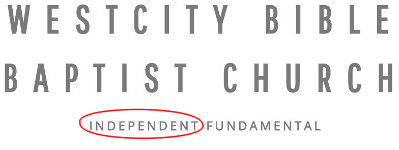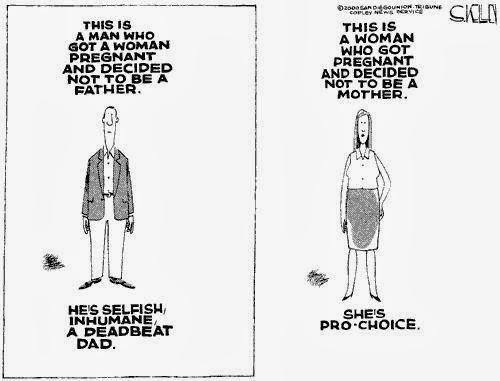Black people face real disadvantages and difficulties when it comes to crime and law enforcement. As soon as some people – usually white people – hear those words, they begin to switch off and act as though they are not interested in the problem, or in even admitting that there is one sometimes. But there is one, and if you’re a person who, like me, wants to be a follower of Christ in the world, then you should care because people are hurting over this.

The lead story on tonight’s news was that of Pastor Logan Robertson’s email reply to Jim Marjoram. Jim Marjoram is a homosexual man who recently wrote an autobiography detailing his former life as a “fundamentalist” Christian. He emailed a number of Auckland Churches about the book, and about the “Support Silent Gays” support group. Robertson’s reply is now world-famous in New Zealand: “I pray that you will commit suicide, you filthy fag.” Read about it here.
Now, my cynical side (the side I usually listen to) says that when you send an email to churches advertising a book about your journey from “fundamentalism” to being openly gay, and advertising a gay support group, if you’re clever you send it to a few liberal churches who will offer supportive comments you can quote, and you pick the nuttiest you can find, so you can quote them. Either end of the spectrum is good for publicity, and that has certainly proven to be the case here. Send the book it to people who will react badly, and make sure everybody hears about it when they do. Works like a charm.
Still, what an overly nasty thing to say, you might be thinking. And you’d be right, of course! It beggars belief that the pastor of a Church whose website calls itself a “family-oriented” church would say this. And it makes one’s head explode to see that at that site, we are told that “Pastor Robertson has a love for the lost and our church has a vision of reaching the lost souls of Auckland.” A love for the lost! I doubt there would be much point in any of us, Christian or otherwise, trying to reason with a person who thinks this is a helpful way to reply to anybody. What’s more, there are enough people who already hold patently false views of how the church interacts with gay people, and this will only make that perception worse.
How does this happen?

What comes first: religion or adverse social conditions?
I’ve heard it said a few times that there’s a correlation between religious societies in the modern West and social ills like crime and poverty. If we wanted to be really picky, the study that purported to show this (a study that has seen its fair share of criticism) actually showed that where the religious exist alongside the non-religious and where religion is construed in a particular way (a type of conservative religious outlook that included the rejection of evolutionary science), social ills were more prevalent. I’ve commented briefly on this before (See “Does Religious Faith make People More Moral?”).
When the alleged correlation was first brought to my attention in a radio discussion in 2010, I didn’t think much of it. There were probably a few ways the analysis could go. One possibility, I suggested, was that social ills like poverty could actually contribute to the religiosity of the people affected. But for some reason, every time I have heard the study referred to, it has only been in a context where somebody was trying to show that religion is bad for you.
As it turns out, while the ideologues were at it, so were researchers. “People living in hardship are more likely to believe in moralising, high gods, according to a major new study co-authored by New Zealand researchers.”

If you hold a materialist view of human nature, can you still hold an orthodox view of Jesus as God incarnate?
The short answer: Yup.
Podcast: Play in new window | Download

Once upon a time, in a free country, a private organisation that loves the Bible encouraged private individuals to take their own Bibles to school for their own use in free time, because they love the Bible and because they wanted to remind people that this is allowed.
It wasn’t long before word spread of this decree, and the American Humanist Association asked its friends what they thought of it. This is what the American Humanist Association says about itself:
Mission
The mission of the American Humanist Association is to advance humanism, an ethical and life-affirming philosophy free of belief in any gods and other supernatural forces. Advocating for equality for nontheists and a society guided by reason, empathy, and our growing knowledge of the world, the AHA promotes a worldview that encourages individuals to live informed and meaningful lives that aspire to the greater good. [Emphasis added]
They aren’t old fashioned humanists, the AHA. Old fashioned humanists believed in silly things like God. Isn’t that funny? No, these are modern, clever humanists. It’s fun to call this group AHA, because “Ahaa!” is the sound you make when you’ve had a clever idea. The AHA’s friends are all very, very clever, which is why this is such a good name. Don’t you agree?
This is what the AHA asked its friends:

Here’s a caricature of Christian apologists: They are people who put on a front of using slick, pat arguments, ignoring, glossing over or oversimplifying real difficulties with their faith. Deep, deep down they know that what they say is full of holes and they doubt the truth of their religious beliefs, but they suppress and ignore those doubts. That will be true in some cases no doubt, but I really don’t think it’s true in general (and I hope you know that this is coming from somebody who has no trouble expressing frustration with the apologetics community when he thinks it’s justified). But we need to work at keeping it that way. What I’m about to do is part of that effort.

I wish people would stop saying that we have a centre right government. What does that even mean to you? As many people will know, New Zealand recently had its general election, and the National government increased its majority at the considerable expense of the Labour and Green Parties. A couple of times in recent history I have heard this National government referred to as a “centre right” government. In fact Prime Minister John Key used that term on the night of his party’s election victory.


 A few years ago my article “The Epistemological Objection to Divine Command Ethics” was published. In it, I address a particular objection to a divine command theory of ethics. That objection is as follows: If the property of being morally required is the same as the property of being commanded by God, then people who do not believe in God cannot know that they have moral obligations, since they do not know that they have been commanded by God. But it’s part of the nature of moral obligations that people understand why they have them. So let’s reject a divine command theory of ethics. An epistemological argument is one that is concerned with what a person knows (or whether or not they can know something) and how they know it. In the process of making the argument I name a few philosophers who have made variants of this argument, but I focus mostly on Wes Morriston’s argument due to its detail and care.
A few years ago my article “The Epistemological Objection to Divine Command Ethics” was published. In it, I address a particular objection to a divine command theory of ethics. That objection is as follows: If the property of being morally required is the same as the property of being commanded by God, then people who do not believe in God cannot know that they have moral obligations, since they do not know that they have been commanded by God. But it’s part of the nature of moral obligations that people understand why they have them. So let’s reject a divine command theory of ethics. An epistemological argument is one that is concerned with what a person knows (or whether or not they can know something) and how they know it. In the process of making the argument I name a few philosophers who have made variants of this argument, but I focus mostly on Wes Morriston’s argument due to its detail and care.
